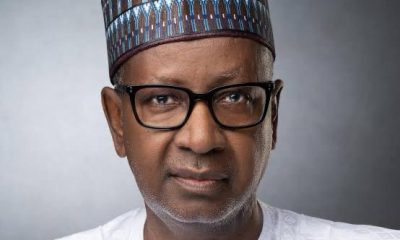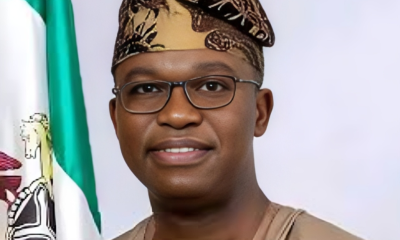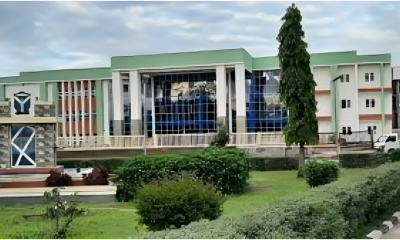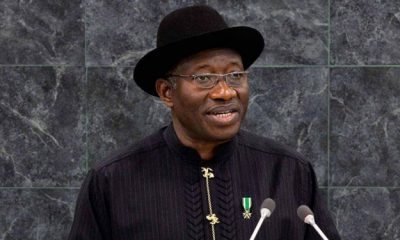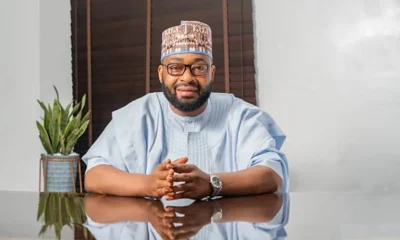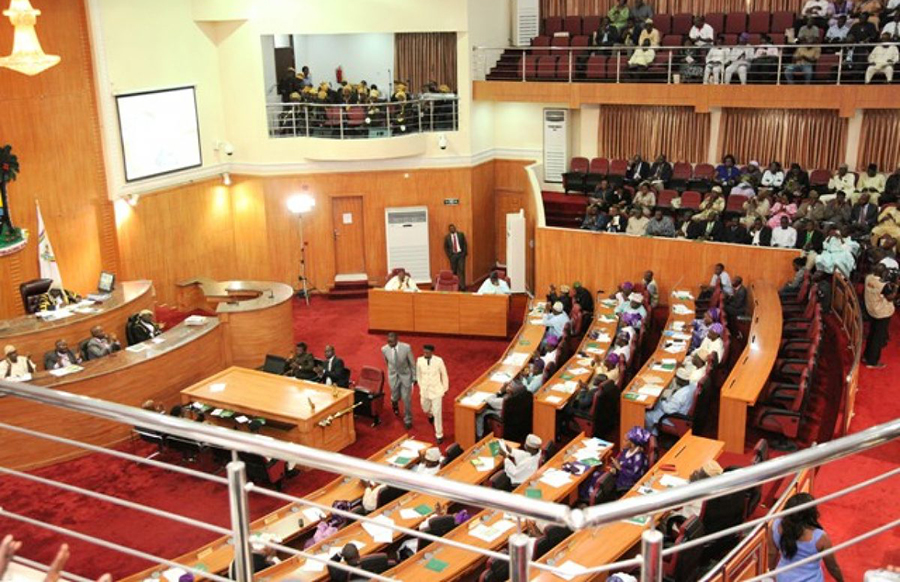Oil & Gas
NNPC to Licence Airline Operators for importation of Aviation Fuel
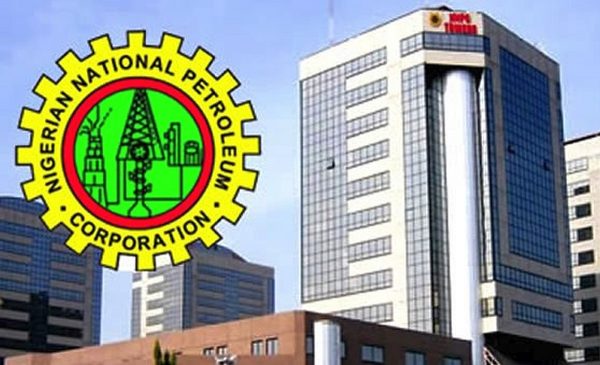
By Ubong Ukpong, Abuja
Group Managing Director of Nigerian National Petroleum Company (NNPC) Limited, Mr. Mele Kyari yesterday, said that the national oil company would licence Airline Operators Association of Nigeria (AOAN), to commence importation of Aviation Fuel otherwise called ATK.
Kyari disclosed this at the end of the investigative hearing into the price hike of ATK by oil marketers, held at the instance of the House of Representatives, during which the House leadership, Major Oil Marketers Association of Nigeria (MOMAN) and Depot and Petroleum Products Marketers Association of Nigeria (DAPPMAN), NNPC Limited unanimously resolved to fix the ATK price at N500 per litre as against N670 per litre.
“We know this is a very difficult situation. We know that once aviation fuel increases, prices of flight ticket will certainly increase and this can surely cost pains for Nigerians. That is why we are working with you to ensure that those pains are minimized to the barest minimum and one of the elements is the pricing of aviation fuel.
“So, what we have engaged with MOMAN, DAPMAN and the airline operators is that in three days’ time, their representatives will sit down and agree on a transparent base for pricing. That means that they ought to have a referenced benchmark that is quoted transparently in the market.
“They will have a referenced exchange rate for the Naira so that anyone can compete. They will also agree on a premium which currently differs from Customer to Customer, depending on the volume you buy and the credit level.
“These are the things they can negotiate in three days and close so that going forward, there is a transparent decision on pricing. This will no doubt throw up the actual value of the product in the market. You will no longer see these discrepancies we have seen where some people are selling at 445 and some are selling at N630. This will completely bring close such that you will not see these differences.
“We also agreed that in the interim, between now and the three days that have to close negotiations, (the lowest price we have seen as at this morning was N445 and a high of N605. There is a trader that is selling at N630 and we don’t think this is normal and so, we discounted it), we agreed that the will sell at N500 in the next three days and after that, they will switch to the new price that everyone can assess.
Speaking earlier at the hearing, Deputy Speaker, Hon. Ahmed Wase chided the authorities of Nigerian Midstream and Downstream Regulatory Authority (NMDPRA) for failing in its responsibilities, saying: “You are suppose to regulate their (oil marketers) activities, are you just giving the licence? What are the minimum requirements; what is expected of that company that you are authorizing them to bring in this product; is it that they have the opportunity and then the leverage to tell you whatever rate they want and it has to stand? No, I don’t think so,” the Deputy Speaker queried.
While noting that the investigative hearing initiated by any Parliament is a quasi-court, Hon. Wase said: “you are a lea the one to give the direction. I cannot listen to them (Airline operators) much because you are the regulator, the law allows you to do that, the law allows you to issue licence, it’s not everybody that is allowed to bring in this product. GMD knows what suffering he has gone through in trying to bring back normalcy because of the carelessness of some persons has caused us. Is it the past situation we we have found ourselves that you are trying to take us back to? I said we are not, you remember I sued the word don’t blackmail this government? We are not willing to accept blackmail,” Hon. Wase warned.
In his remarks, Chairman/Managing Director of Air Peace, Mr. Allen Onyema who frowned at the fraud being perpetuated by the oil marketers and the reluctance to give actual cost of landing cost of ATK, said: “Mr. Deputy Speaker, sir, nobody on this side of the divide has answered your question. You have been asking them one particular question. Everybody is dancing around it.
“What the Deputy Speaker wanted to hear is how much did buy this fuel per liter. By now, you must have computed it. They are dancing around it and telling you stories. That is what you have been asking, sir. Before they came here, they were supposed to have computed their unit cost.
“I have the mandate of every airline in this country to announce to you that if they can’t come down from their rooftops, we have only three more days to be able to fly. We are not threatening this country. We have been subsiding what we have been doing.
“The rate as at today is N630, N640 and N605. We have an aircraft going to Kano, it has about 7000 liters of fuel in it, multiple it, sir by N630. The unit cost per seat is about N70,000 per seat. You have not talked about insurance that is very static. Nigerians pay heavy insurance premium because this country is stigmatized.
“You have to insure abroad. It is a must before all the insurance companies in Nigeria put together cannot even pay for one aircraft. So, you have to go abroad to insure. Yet the fuel cost which is supposed to be about 30 to 40 percent in every clime, in Nigeria it about 70 percent even before time. So, so you can now see the mortality rate of airlines in this country.
“They refused to answer your simple question. Whether you got money from CBN or red market, how much is the unit cost of your acquisition so that we know if the airlines are cheating you or you are cheating the airlines, if you have formed a cartel to increase your prices overnight. From what is happening, sir, if it continues this way, the least ticket will be about N120 for economy and we don’t want to do that.
“We want to inform the house that we are demanding that we should be given license to import this fuel. If we can buy jets that cost hundreds of billions of dollars, we can afford to import this fuel. Let NNPC give us the right to import this fuel, we won’t complain, sir.
Speaking after the resolution of the crisis, Mr. Onyema who applauded the House intervention, said: The Nigerian Legislature has been very wonderful, without you, the Airlines in Nigeria would have crumbed. I am not saying this to please you.
“You fought for the Customs waivers on imported aircrafts, Aircraft spares and for the airlines to have sustainable operations. So, we owe you a huge gratitude, together with the resident of this country who signed it into law.
“For the (NNPC) GMD, he was very transparent and was not on any side except on the side of truth. He told me it was too possible to bring down the price to N200, but he brought it to where it is. The DG NCAA has always breadth down our neck to ensure that fly safe. We thank the GMD for wading into this. Even though at N500, our unit cost per seat will now be about N85,000 barely insurance and other things. That is our pains. I wish we could buy this fuel at N200 so that Nigerians can afford to buy it. That is our predicament and so, the public should understand if there is shift in what they are paying now and what they are going to pay later.
“Anybody can calculate it just as it has been done here, to buy 8,000 liters of fuels at N500 per liter. How much will that give you for just one hour flight.”
On his part, the Deputy Minority Leader, Hon. Toby Okechukwu who frowned at the level of impunity being perpetuated by some actors, said: “I believe strongly that it is better to jaw aw than to war-war. Essentially, we all know the limitation of not getting a problem solved and the best always is to find solution which we have done today. We will continue to work for the Nigerians people.
“I will plead that whatever assistance the GMD and the regulatory authority can give the aviation industry, they should please do because the market is a big chaotic now and whatever impact in the aviation has security consequences.”
In his ruling, the Deputy Speaker, Hon. Wase who stressed the need for effective monitoring of the implementation of the resolution, said: “We have come to terms and reached a number of resolutions and we are looking forward to a conclusion.”
Oil & Gas
NNPC Ltd. Disclaims Fake Financial Scheme

The Nigerian National Petroleum Company Limited (NNPC Ltd.) has disowned a fake AI-generated video circulating on social media featuring a cloned voice of the Group CEO, Mr Bayo Ojulari, promoting a fictitious poverty alleviation scheme.
The Chief Corporate Communications Officer, NNPC Ltd.
, Olufemi Soneye in a statement on Thursday clarified that the company had no such investment initiative.Soneye urged the public to disregard the video, originally shared by an account named Mensageiro de Cristo on Facebook.
“NNPC Ltd. has warned the perpetrators to cease their fraudulent actions or face legal consequences,” he said. (NAN)
NEWS
NGEP Urges Gas Reticulation In Buildings

By Olasunkanmi Onifade
Abuja, April 29, 2025 The National Gas Expansion Programme (NGEP) has called on stakeholders to promote the integration of gas reticulation systems in estates, districts, and industrial areas, following best practices seen in developed countries.
Chairman of NGEP, Prof.
Mohammed Ibrahim, made the call on Tuesday during the Builders’ Conference and Annual General Meeting of the Nigerian Institute of Building (NIOB), FCT Chapter, in Abuja.The conference, themed “Gas Reticulation in Building: Design, Safety, Environmental Compliance and Prospects for Builders,” focused on enhancing energy infrastructure in Nigeria’s built environment.
Ibrahim noted that with Nigeria’s vast natural gas reserves, gas reticulation offered a sustainable solution to improve energy accessibility, affordability, and reliability in homes and businesses.
“Gas reticulation in buildings presents a compelling pathway to a more sustainable, efficient, and resilient built environment.
“By prioritising sound design principles and ensuring strict adherence to safety and environmental standards, we can unlock the full potential of natural gas to drive progress,” he said.
He highlighted the key benefits of gas reticulation, including energy efficiency, cost effectiveness, versatility, and reliability.
Also speaking, the Chairman of the Council of Registered Builders of Nigeria, Samson Opaluwah, stressed the importance of capacity building for safe and efficient gas distribution.
He said this involved training engineers, technicians, and other professionals in system design, installation, and maintenance, while also strengthening regulatory frameworks and encouraging local innovation and manufacturing.
The Chairman of NIOB, FCT Chapter, Usman Okehi, emphasised the growing need to incorporate gas systems in residential, commercial, and industrial developments across Nigeria due to rising energy demands and gas availability.
According to him, with this advancement comes the need for strict adherence to design standards, rigorous safety protocols, and full environmental compliance.
“It is our responsibility as professionals and regulators to ensure these systems are functional, safe, and environmentally sound,” Okehi said.
He described the conference as a platform where stakeholders could explore the evolving landscape of gas infrastructure in building projects, share best practices, examine safety and environmental considerations, and assess future opportunities for builders in the sector.
The News Agency of Nigeria (NAN) reports that the Nigerian Institute of Building is the professional body for builders in Nigeria. It traces its origins to the Builders’ Society, established in London in 1834.
Oil & Gas
FG Inaugurates Committee to Enhance Gas Distribution in Urban Buildings

The Ministry of Petroleum Resources has inaugurated a Technical Working Group to enhance gas reticulation practices in Nigeria’s building industry.
The ministry’s Permanent Secretary, Amb. Nicholas Ella inaugurated the Technical Working Group (TWG) between the National Gas Expansion Programme (NGEP) and the Council of Registered Builders of Nigeria (CORBON) on Wednesday.
Reports= says that reticulation refers to the process of creating a network of pipes or tubes to distribute gas or other utilities to buildings or industrial sites.
The permanent secretary restated the importance of creating energy smart cities, saying that modern urban development relies on efficient gas and utility distribution systems,
“Most modern cities in developed countries have evolved to energy smart cities where energy, specifically gas and other utilities are piped to districts and estates.
“However, one of the key tools in creating energy smart city is the National Building
Code which, in essence, sets the guidelines on Building Pre-design, designs, construction and post-construction stages,” he said.
The permanent secretary reiterated the benefits of reticulated gas systems for households and businesses alike, adding that it ensured metered supply akin to water and electricity,
According to him, it eliminates the need for cumbersome refills, and also enhances safety by burying pipes and incorporating advanced safety equipments.
“The TWG is tasked with designing a comprehensive policy to implement best practices for gas reticulation using LPG, PNG, and Bio-Gas across Nigeria’s building sector.
“Key responsibilities include reviewing the current National Building Code, examining global gas distribution systems, and proposing quality standards for materials used in gas installations,” he said.
The permanent secretary emphasised the need for rigorous safety protocols and guidelines to ensure the efficient and safe use of gas in construction.
He urged the group to prioritise environmental sustainability in its recommendations, adding that the group is expected to submit its report by Nov. 15.
Earlier, Mr Samson Opaliwah, the Chairman of CORBON. expressed the council’s commitment to collaborate with the group to ensure safe uptake of gas for use in houses and housing estates in Nigeria.
“I assure you of the williness of CORBON to leverage the expertise and resources at her disposal to ensure that steps are put in place for gas infrastructure in buildings and estates.
“The gas infrastructure will be safe, sustainable and world-class.
” Our collective efforts will yield clear, standardised guidelines for safe and effective gas systems in buildings, matched with a skilled workforce to meet growing demands in Nigeria,” he said. (NAN)




